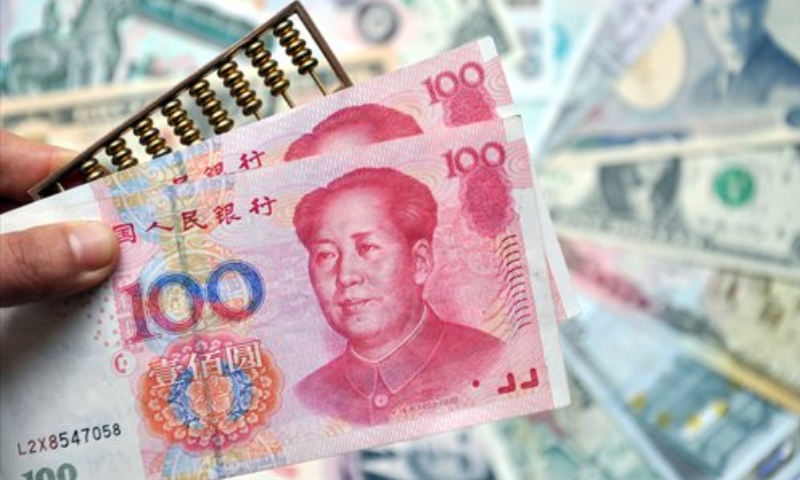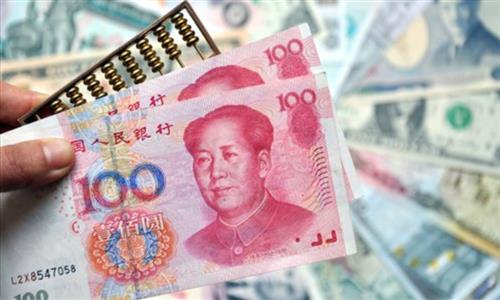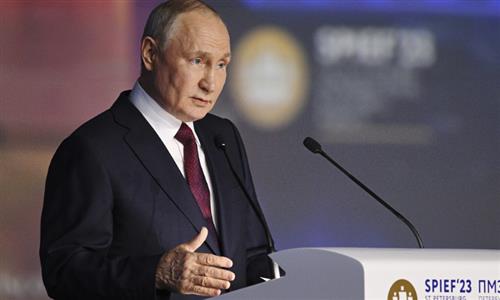Share of Chinese yuan in Russian households' savings set to top 45%: VTB deputy CEO

Photo: VCG
Savings of Russian in the Chinese yuan will increase by a factor of two and reach 88 billion yuan ($12.3 billion) this year and the share of the Chinese currency in Russian households' currency saving is estimated to be above 45 percent by the end of 2024, deputy CEO of VTB Bank Anatoly Pechatnikov said on Wednesday, according to a TASS report.
The comment was made during the St. Petersburg International Economic Forum (SPIEF) on Wednesday. The forum, one of the most important economic forums in Russia, kicked off on Wednesday and will last until Saturday.
The expanding share of the yuan in Russian savings and settlement also comes amid closer bilateral ties as well as the country's strategic need to reduce dependence on the US dollar, whose dominant position has been weaponized by the US government with its unilateral sanctions.
"The amount of Russians' savings in the yuan could reach 150 billion by the end of 2025," Pechatnikov was quoted as saying in the TASS report. He said that the Chinese currency will make up a quarter of currency savings of customers this year.
Amid the rise in yuan deposits, Sberbank's head of finance Taras Skvortsov told Reuters that Sberbank will issue bonds in Chinese yuan this year if an opportunity arises and will continue borrowing in rubles to drive portfolio growth. Sberbank is Russia's dominant lender.
According to Skvortsov, the bank's yuan deposit portfolio has grown 1-1/2 times since the start of the year, Reuters reported.
In addition to deposits in the Chinese currency, there has also been a significant rise in the yuan's role in bilateral transactions since last year, amid mushrooming bilateral trade which is expected to exceed the benchmark of $200 billion this year ahead of schedule.
In May, Russian Prime Minister Mikhail Mishustin said that bilateral local currency settlement climbed to nearly two-thirds of the total in 2022 from about 25 percent in 2021, Sputnik News reported.
It is expected that the yuan will gain momentum not only in Russia, but also across the world, given the strong demand stemming both from trade needs and hedging against geopolitical risks and US dollar hegemony, observers said.
Global Times



